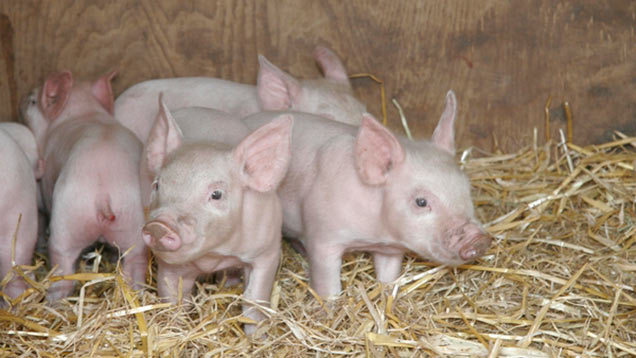Livestock strain of MRSA found in pigs in England
 ©Tim Scrivener
©Tim Scrivener Government scientists have reported the first ever cases of livestock-associated MRSA in pigs in England.
The skin disease was confirmed in piglets from a breeder-finisher farm located in eastern England, Defra’s Animal and Plant Health Agency (APHA) confirmed.
Two 10-day-old piglets with skin lesions were submitted to an APHA veterinary centre on 30 December last year.
See also: What you need to know about MRSA
The current cases only came to light after an outbreak of skin disease affecting 11 litters on a farm in eastern England.
Defra scientists tested two 10-day-old piglets and both were MRSA-positive. Overall, out of the 60 pigs with the condition, six died.
It is the second case of livestock-associated meticillin-resistant Staphylococcus aureus (LA-MRSA) confirmed in the UK after the disease was first discovered on a pig from a farm in Northern Ireland last August.
The finding comes just weeks after scientists in Europe, where MRSA has been present in pigs for a decade, reported that the same strain of LA-MRSA is evolving to become a serious hazard for humans.
The fact the piglets were infected by MRSA, not just carriers of the disease, means this could be the more virulent type the European scientists are worried about, although this has not yet been confirmed.
LA-MRSA was first reported in pigs in the Netherlands in 2005, and rapidly spread throughout the European pig population through the trade of live animals. However, the UK imports few live pigs from Europe.
The livestock strain of MRSA can transmit to humans and cause human infections. Farmers and farmworkers are most at risk and still account for the majority of cases.
Unlike most European countries, the UK has not carried out any active MRSA surveillance of its pig and poultry, other than an EU-mandated survey of pigs in 2008.
In the past year scientists in Germany, Spain, the Netherlands and Denmark have all reported increasing number of cases in people with no direct livestock contact, suggesting the strain is evolving to spread more easily from human to human, a development that scientists have been warning of for years.
In December, French, Swiss and Dutch scientists published genetic evidence that this is now happening. They found a sub-population of LA-MRSA has acquired new genes, which appear to enable the bacteria to cause more infections in animals and to spread to and infect humans more easily.
They said that the strain was now a “serious hazard for humans” which had “the capacity for pandemic spread in humans”. They called for “active surveillance”.
Cóilín Nunan, principal scientific adviser to the Alliance to Save Our Antibiotics, said: “In 2007, when Britain’s pig herd was MRSA-free, we called for all imported pigs from MRSA-positive countries to be tested and for the use of the antibiotics most likely to select for the bacteria to be restricted.
“But Defra refused to take action and now that MRSA-free status has been lost. It’s scandalous that Defra still isn’t doing any proper MRSA surveillance of British pigs.
“Defra’s inactivity on this issue for years has allowed this situation to develop. These cases are likely to only be the tip of the iceberg. MRSA may already be much more widespread in British pigs since most pigs with the bacteria show no visible infection.”
A Defra spokesman said: “LA-MRSA has been identified in livestock in a number of countries and is not considered a significant risk to animal or humans.
“We conduct an extensive programme to monitor antibiotics resistance in bacteria from animals and carefully consider all cases to establish if they present any risk.
“We also regularly review the range of surveillance and control options available.”
